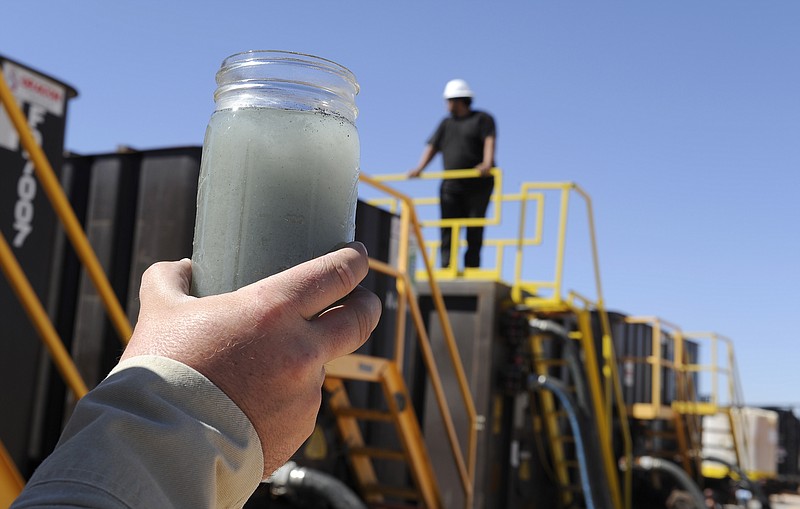In the world of President Barack Obama, you can take credit for lower gasoline prices while working behind the scenes to cripple the process that is to a large extent responsible for the lower prices.
But you don't always get your way.
Cue the president from a 2015 speech at Ivy Tech Community College in Indianapolis:
"We're as free of foreign oil as we've been in 30 years," Obama said. "We've doubled the amount of clean energy that we're producing. A lot of families are saving a lot of money at the gas pump, which is putting some smiles on folks' faces.
"You're welcome."
The mere "you're welcome" comment, as if the audience was so grateful they couldn't find the words to thank him, is the height of arrogance. But the fact Obama dislikes the fracking process that has allowed the extraction of oil and natural gas to be cheaper - and thus prices to go down - is the ultimate of hypocrisy.
The president also touted an increase in oil and gas production throughout his 2012 re-election campaign. And in July 2014, he again took credit for the improvement.
"We're more energy independent: The world's No. 1 oil and gas producer is not Russia, it's not Saudi Arabia, it's the United States of America," he said.
But before the wide use of fracking - the pumping of high-powered water and chemicals underground to split open rocks to allow oil and gas to flow - the president couldn't imagine any kind of fossil fuel recovery method to be worth supporting.
In 2006, then-Sen. Obama said expanded drilling in the Gulf of Mexico would only "lull the American people into thinking that we can drill our way out of our energy problems."
When energy prices spiked during the 2008 presidential campaign, he mocked Republican candidate Sen. John McCain's call for drilling and vice presidential nominee Gov. Sarah Palin's cry of "Drill, baby, drill."
"This is one emergency," he said, "we can't drill our way out of."
Then, following the BP oil spill in the Gulf of Mexico in 2010, Obama said "the reason you never heard me say, 'Drill, baby, drill,' [is] because we can't drill our way out of the problem." He added that "easily accessible oil has already been sucked up out of the ground."
Turns out, of course, it hadn't been.
But even as Obama began to take credit for the increased production, the swelling reserves and the lower gas prices, he was working against the process.
In 2015, the administration, through its Department of Interior, put into place requirements for companies that drill on federal lands to disclose the chemicals used in their operations and update the requirements for well construction and disposal of water and other fluids used in the process.
Drilling on federal lands, covering some 750 million acres and 100,000 oil and gas wells, accounts for 10-11 percent of the natural gas and 5 percent of the oil the U.S. consumes, according to Interior Department figures.
Subsequently, Colorado, North Dakota, Utah and Wyoming - many of which already must heed needed state regulations - and various industry groups filed suit against the administration, saying the 2005 Energy Policy Act passed by Congress prohibited the Interior Department from regulating most types of fracking.
Last week, an Obama-appointed federal judge agreed with the states and industry groups.
"Congress has not delegated to the Department of Interior the authority to regulate hydraulic fracturing," Judge Scott Skavdahl of the U.S. District Court of Wyoming wrote in his ruling. The agency's "effort to do so through the Fracking Rule is in excess of its statutory authority and contrary to law."
The ruling by the judge, who was appointed by Obama in 2011, is one of the rare times in which the administration has been slapped down in its effort to go around Congress and decide things on its own.
"Congress' inability or unwillingness to pass a law desired by the executive branch does not default authority to the executive branch to act independently, regardless of whether hydraulic fracturing is good or bad for the environment or the citizens of the United States," he wrote.
In other words, Skavdahl was saying, whether fracking is good or bad, you can't make up the rules. Given Obama's reputation as an imperial president, it's a shame he hasn't heard that a little more often.
